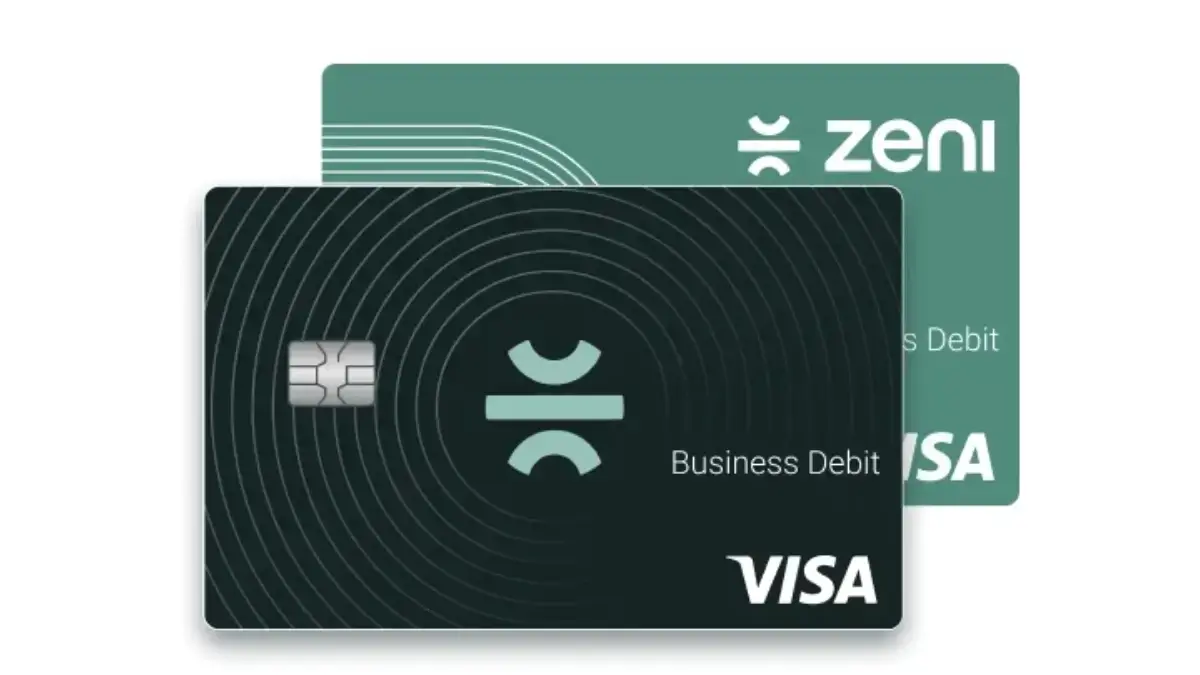
Kudos has partnered with CardRatings and Red Ventures for our coverage of credit card products. Kudos, CardRatings, and Red Ventures may receive a commission from card issuers. Kudos may receive commission from card issuers. Some of the card offers that appear on Kudos are from advertisers and may impact how and where card products appear on the site. Kudos tries to include as many card companies and offers as we are aware of, including offers from issuers that don't pay us, but we may not cover all card companies or all available card offers. You don't have to use our links, but we're grateful when you do!
Personal Umbrella Insurance 101 – What It Is & Why You Need It (2025)
July 1, 2025


When it comes to protecting your finances, you might have auto insurance, home insurance, and maybe even renters insurance. But is it enough? Personal umbrella insurance is an extra layer of liability protection that goes beyond the limits of those standard policies. Think of it as a financial safety net that catches what your other insurance policies can’t.
In this 2025 guide, we’ll break down exactly what umbrella insurance is, how it works, what it covers (and doesn’t cover), and why you might need one – even if you consider yourself an average, careful person. By the end, you’ll see how an umbrella policy can shield your savings from worst-case scenarios.
Plus, we’ll share how tools like Kudos can help you save money along the way, because being protected and being financially savvy should go hand in hand.
What Is Personal Umbrella Insurance?
Personal umbrella insurance (sometimes just called an “umbrella policy”) is extra liability insurance that kicks in when you reach the limit of your homeowners, auto, or other base policy. In plain English: it’s coverage for big, costly incidents that exceed your regular insurance.
For example, if you’re found at fault in a major car accident or someone gets seriously injured on your property, your auto or home insurance will pay out up to its limit – and anything beyond that could come out of your pocket. Umbrella insurance covers that excess liability so you don’t have to drain your savings or sell assets to cover a lawsuit.
Here are key points to understand:
- It’s all about liability. Umbrella policies pay for costs if you are legally responsible for injuries or property damage to others. This includes things like medical bills, property repairs, and legal judgments/settlements if someone sues you.
- It supplements (not replaces) other insurance. You can only use umbrella insurance after your auto, home, or other primary liability coverage has paid up to its limit. Umbrella coverage then continues paying up to its own limit for remaining costs.
- High limits are available. Umbrella policies are typically sold in increments of $1 million in coverage. Common coverage amounts are $1M, $2M, $5M, even $10M. This might sound like a lot, but in today’s world, lawsuits can reach into the millions.
In short, a personal umbrella policy provides peace of mind. It’s the answer to the question, “What if something awful happens and I get sued for a huge amount?” With an umbrella, you know you have extra protection beyond the basics.
What Does an Umbrella Policy Cover (and Not Cover)?
One big misconception is that umbrella insurance covers everything. While it does cover a lot of scenarios, it has specific purposes. Here’s a breakdown of what umbrella insurance typically covers, and what it doesn’t:
Covered by Umbrella Insurance: (for you and members of your household)
- Bodily Injury to Others: If you cause an accident or someone is hurt due to your negligence, an umbrella policy can cover medical bills, liability claims, and even lawsuits related to those injuries.
- Property Damage to Others: Umbrella insurance will pay if you’re responsible for damaging someone else’s property. This could be a multi-vehicle car crash where other cars are totaled or an incident where your child accidentally causes major damage to a neighbor’s home.
- Personal Liability Cases: This is where umbrella shines beyond standard policies. Umbrella insurance often covers libel, slander, defamation, and other lawsuits against you for hurtful statements. Your basic home/auto insurance typically does not cover these sorts of personal offense claims, but an umbrella policy does.
- Legal Defense Costs: Beyond just payouts, umbrella insurance usually covers the lawyer fees and court costs to defend you in covered lawsuits. These costs can be enormous on their own. With an umbrella policy, the insurer hires and pays for your legal defense, even if you end up not being found liable.
- Landlord Liability: Umbrella insurance often extends to landlord activities. If a tenant or visitor on your rental property sues you (say someone falls on a broken stair at your rental house), the umbrella policy can help cover that liability beyond what your landlord or dwelling policy covers.
Not Covered by Umbrella Insurance: (common exclusions)
- Your Own Injuries or Property: Umbrella insurance does not cover you for your medical bills or damage to your own property. It’s liability insurance, not health or collision insurance. So if you injure yourself or your car is damaged, that’s for your health insurance or auto collision coverage to handle – umbrella won’t pay for your injuries or repairs to your stuff.
- Intentional or Criminal Acts: If you deliberately harm someone or commit a crime, umbrella insurance won’t cover the damages or legal costs. Insurance is designed for accidents and negligence, not malicious acts.
- Business Liability: Personal umbrella policies typically exclude business-related liability. If you own a business or are self-employed, you’d need a commercial umbrella policy for those risks.
- Contracts and Agreements: Liability you assume under a contract is often excluded. For instance, if a contract you sign makes you responsible for something and you get sued over that contract, an umbrella policy likely won’t cover it.
- Certain Vehicles or Activities: Some umbrellas exclude specific things like watercraft or ATVs unless you have underlying policies for them. Always check the policy details for any exclusions (e.g. some policies might not cover dog bite liability if you own certain breeds, etc., unless arranged).
As you can see, umbrella insurance is broad but not universal. It focuses on major liability to others. Your own injuries and intentional risks are outside its scope. Knowing these limits helps you understand what an umbrella policy is meant for: unexpected lawsuits and claims that could financially devastate you.
Umbrella insurance sits on top of your existing policies and only comes into play when needed. You’ll hardly notice it’s there until a huge claim arises – and then you’ll be extremely glad to have it. It is truly umbrella-like: most of the time you might not need it, but when it rains lawsuits, it can save the day.
How Does Umbrella Insurance Work? (Example)
It’s useful to see umbrella insurance in action with a real-life scenario. Let’s illustrate how it works in a worst-case incident:
Example: You’re driving and accidentally run a red light, causing a multi-car accident. Several people are injured, and multiple vehicles (including a high-end SUV) are badly damaged. You are found at fault. The medical bills for injuries total $300,000 (people in other cars), and property damage claims total $150,000.
In addition, one of the injured parties is unable to work for months and sues for lost income and pain & suffering, seeking another $500,000 in damages. In total, you’re facing $950,000 in liability.
- Your Auto Insurance: Let’s say you carry the typical $300,000 liability limit on your auto policy. It will pay out that $300k (likely covering the immediate medical bills). After that, you still owe $650,000 in remaining damages and legal claims. Without an umbrella, you would be personally on the hook for that $650k – potentially by liquidating savings, investments, or future wages.
- Umbrella Policy Kicks In: Now imagine you have a $1 million umbrella insurance policy. Once your auto insurer pays its $300k max, your umbrella policy can cover the remaining $650,000 of costs. It would also cover the legal defense costs to handle the lawsuits against you. In this scenario, your umbrella policy saved you from a financial catastrophe – it protected your assets (home, retirement fund, etc.) from being seized or drained to pay that $650k
In practice, if you have umbrella insurance, you likely won’t even see much disruption beyond dealing with the claims process. Your insurers (auto and umbrella) coordinate payment up to their limits. The umbrella ensures that the entire judgment or settlement can be paid without you having to contribute (up to your umbrella limit).
If the claims had totaled, say, $1.2 million, your umbrella would cover up to $1M and you’d be on the hook for the excess $200k – which is why some people opt for higher umbrella limits if they have a lot of assets. But for most, $1M covers the vast majority of foreseeable worst-case gaps.
Why Might You Need Umbrella Insurance?
Now that you know what umbrella insurance does, the big question is: Do you need it? Not everyone with an insurance policy necessarily requires an umbrella. However, many people find it’s a smart purchase for the amount of protection it provides.
Here are common reasons and profiles that suggest you should strongly consider an umbrella policy:
1. You have significant assets to protect.
If you’ve built up savings, a home, investments, or other valuable assets, a major lawsuit could put those at risk. For example, homeowners with substantial equity or individuals with a sizable net worth (six figures and up) have more to lose if sued.
Umbrella insurance ensures a lawsuit doesn’t wipe out your lifetime of savings. Many financial experts suggest that if your net worth is around $500,000 or more, umbrella insurance is “absolutely necessary”. Even at lower asset levels, consider how you’d defend yourself in a serious claim – an umbrella buys you that defense and coverage.
2. You have a high likelihood of being sued.
This isn’t something anyone likes to think about, but certain lifestyles or activities increase your liability risk.
Examples:
- You have teenage drivers in your household.
- You frequently host parties or have visitors at your home.
- You own rental property or are a landlord.
- You have dogs or other pets that could potentially injure someone.
- You have a public profile or speak your mind online.
- Your profession or hobbies involve liability exposure.
- Peace of mind for a small cost.

On the other hand, if you truly have no significant assets, have low income, and very low risk factors (for example, you rent, don’t drive much, and have no dependents or risky activities), then umbrella insurance might be less of a priority. But remember, lawsuits can also go after future earnings.
Even if you don’t have a lot now, a large judgment could garnish your wages for years. This is why even middle-class individuals often carry umbrella insurance – it’s not just for millionaires. You need umbrella insurance if you have anything substantial that a lawsuit could take – be it your home, your savings, or your future income. In today’s litigious society, it’s an essential safeguard for many.
Given how affordable it is relative to the coverage amount, it’s a worthwhile consideration for almost anyone with assets or potential exposures beyond the ordinary. One lawsuit (however unlikely it may seem) can change everything; an umbrella policy changes it right back, protecting you.
How to Get Umbrella Insurance
Getting an umbrella policy is usually straightforward. Most people add umbrella coverage through the same insurer that handles their home or auto insurance, via a bundle.
Here’s how to go about it:
- Check with your current insurer(s): Start by calling your auto or homeowners insurance company.
- Compare quotes from a couple of companies: It’s wise to get quotes from at least two providers.
- Choose coverage amount: Decide how much coverage you need – e.g. $1 million vs $2 million. Consider your net worth and comfort level.
- Complete the application: You’ll provide details on your household (drivers, home, any boats, etc.). The insurer will want to know about any recent claims or any unusual risk factors (like if you have a trampoline, certain dog breeds, etc.).
- Align policy dates and maintain underlying coverage: It’s best to have your umbrella policy renew at the same time as your home/auto policies for simplicity.

When bundling, ask about discounts. Many insurers will give you a small discount on the umbrella policy if you have your home and auto with them. Also, inquire about any exclusions in the umbrella (they’ll provide a policy document – check it for things like breed exclusions if you have a dog, etc., and discuss with your agent if concerned).
Once in place, an umbrella policy typically just sits in the background. There’s no day-to-day maintenance; just renew it each year, pay the premium, and update it if your situation changes (e.g., you buy a boat – notify your insurer to ensure the boat is covered under the umbrella too, perhaps by adding a boat policy below it).
Protecting Your Finances (And Maximizing Value)
Adding an umbrella insurance policy is a savvy move to protect your financial future. You’re essentially paying a small fee now to avoid potentially catastrophic losses later. In a way, you’re insuring your net worth and future earnings. In 2025 and beyond, with medical costs, legal judgments, and incomes on the rise, having that extra $$1–5 million in coverage could be the difference between a minor setback and a financial disaster.
While you’re in the mindset of shielding your finances, it’s also worth thinking about how to optimize your everyday financial decisions. One smart habit is using the right payment methods for your expenses – yes, even for paying insurance premiums. This is where Kudos comes in. Kudos is a free smart tool (browser extension and app) that helps you automatically find the best credit card to use for each purchase, so you earn maximum rewards. How does that relate to umbrella insurance?
Consider this: your umbrella policy premium might be a few hundred dollars per year – if you put that on a cashback credit card that earns 2%, that’s a few bucks back in your pocket. Not huge, but every bit counts. And for larger expenses like your home or auto insurance (which you likely pay annually), using the right rewards card could earn you $20, $30, or more back each year.
Kudos simplifies this by analyzing your cards and telling you which one will give you the highest reward for a given payment. For example, if one of your cards classifies insurance payments as a category for extra points, Kudos will alert you to use that card. It’s a simple way to save money while you spend. Over time, those savings and rewards add up – essentially offsetting some of the cost of your umbrella policy or other bills.
Financial safety isn’t just about preventing loss, it’s also about smart gains. By pairing the protection of umbrella insurance with tools like Kudos to maximize rewards on your spending, you’re covering both defense and offense in your financial game plan. You stay protected from big surprises, and you get a little extra back on the routine things.

In summary, personal umbrella insurance is a small investment for a huge amount of protection. In 2025, as liabilities and risks evolve, staying ahead with an umbrella policy keeps you secure. And with your newfound peace of mind, you can focus on building your wealth – earning rewards, saving, investing – knowing you have a robust shield guarding what you’ve built.
Frequently Asked Questions (FAQ)
Is umbrella insurance really worth it if the chance of a huge lawsuit is low?
Yes – umbrella insurance is about high-severity, low-probability events. The chance of, say, a $1 million lawsuit against you is small, but if it happens the impact is enormous. For a relatively cheap premium, you transfer that risk to an insurer.
How much umbrella insurance should I carry?
A common guideline is to get coverage equal to at least your net worth (all your assets), and even consider future assets or earnings. For many, that means starting with a $1 million policy. If you own a lot of assets (home, investments, business, etc.), you might go $2 million or higher.
Does umbrella insurance cover legal fees and lawyer costs?
Yes, legal defense costs are typically covered by personal umbrella policies. If you’re sued in a covered claim, the insurance will pay for your attorneys, court fees, and related legal expenses, in addition to any settlement or judgment (up to your policy limit).
Can I buy umbrella insurance if I only have renters insurance (no home) and one car?
In many cases, yes. You don’t need to be a homeowner to get umbrella coverage – renters with assets or risks can absolutely consider it. Typically, as long as you have an auto insurance policy (or some primary liability policy like renters insurance) with sufficient liability limits (often $250k auto, $300k renters liability), you can purchase an umbrella policy.

Supercharge Your Credit Cards
Experience smarter spending with Kudos and unlock more from your credit cards. Earn $20.00 when you sign up for Kudos with "GET20" and make an eligible Kudos Boost purchase.
Editorial Disclosure: Opinions expressed here are those of Kudos alone, not those of any bank, credit card issuer, hotel, airline, or other entity. This content has not been reviewed, approved or otherwise endorsed by any of the entities included within the post.





























.webp)
.webp)
.webp)
%20(1).webp)
.webp)
.webp)


.webp)